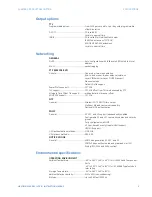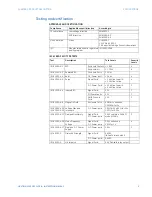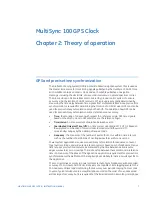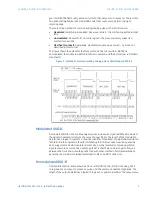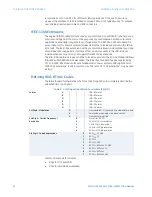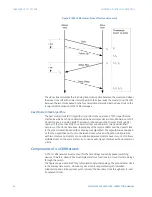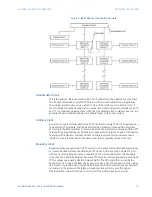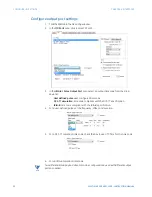
16
MULTISYNC 100 GPS CLOCK – INSTRUCTION MANUAL
IEEE 1588 / PTP / C37.238
CHAPTER 2: THEORY OF OPERATION
Transparent Clocks
Transparent clocks update a time-interval field within PTP event messages, as introduced
in 1588v2. This 64-bit time-interval correction field allows for switch delay compensation
to a potential accuracy of less than a picosecond.
There are two types of transparent clocks, end-to-end and peer-to-peer. End-to-end
transparent clocks update the time interval field for the delay associated with individual
packet transfers, whereas peer-to-peer transparent clocks measure the line delay
associated with the ingress transmission path and include this delay in the correction field.
Peer-to-peer transparent clocks can allow for faster reconfiguration after network
topology changes.
1588-capable Ethernet switches typically support transparent clocks. Some switches also
support boundary clocks.
C37.238
C37.238-2011, the IEEE Standard Profile for Use of IEEE 1588 Precision Time Protocol in
Power System Applications (known as "C37.238" or the "Power Profile") is a specialized PTP
profile for power system applications. This profile is based on the specific substation
network architectures, data exchange mechanisms, and performance of time distribution
service required for power system applications. The profile is optimized for isolated
Ethernet networks and a small number of dedicated grandmaster-capable clocks, typical
of the power substation environment.
The Power Profile achieves the above goals by strictly defining some of the aspects of
1588, especially by selecting peer-to-peer measurements and establishing the overall
steady-state synchronization requirement of 1
μ
s worst-case time error over 16 network
hops. C37.238 also defines the ability to send time zone related data to slave clocks,
specific mappings for IEC 61850 and C37.118.1/.2, strict requirements for Grandmaster
clocks, and an IRIG-B replacement mode.
1588 and C37.238 in the MultiSync 100
The MultiSync 100 GPS Clock is intended to operate as a Grandmaster Clock or an Ordinary
Clock on 1588 networks. The MultiSync 100 supports both 1588v2 and C37.238. The
1588v2 implementation is configurable for end-to-end and peer-to-peer networks, or to
implement the C37.238 Power Profile.
The Multilink ML3000 Ethernet Switch series also supports 1588 when specified with 1588-
enabled ports. The ML3000 switches can operate as boundary clocks or as transparent
clocks.


